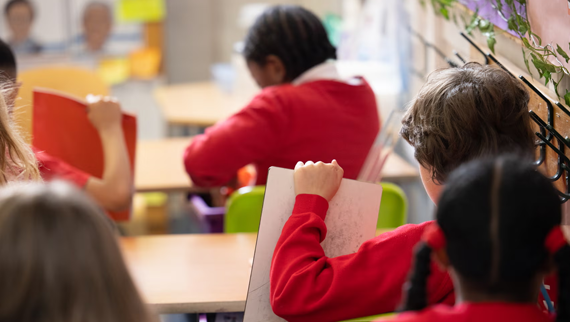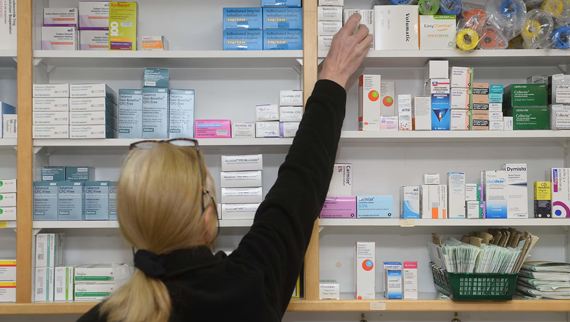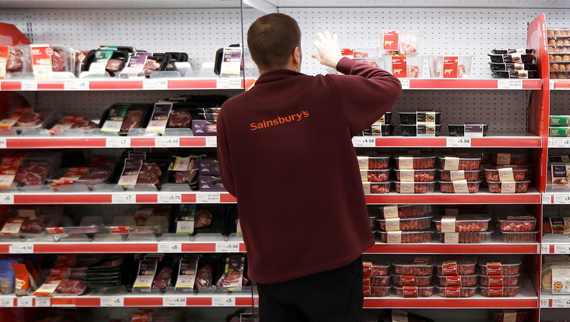A third of UK school staff report ‘physical underdevelopment’ in poor students
A third of UK school staff report ‘physical underdevelopment’ in poor students
A third of UK school staff report ‘physical underdevelopment’ in poor students
A third of UK school staff report ‘physical underdevelopment’ in poor students
A third of school staff have seen “physical underdevelopment” in students due to poverty, with schools in England stretching their budgets to buy basic household items such as cookers, bedding and clothes for pupils whose families are struggling.
A survey of more than 14,000 school staff, published at the National Education Union’s annual conference in Harrogate, found that this rose to more than half of those teachers working in deprived areas, with warnings that things “can only get worse” after recent benefit cuts.
Teachers attending the conference said the malign impact of poverty went beyond malnutrition, with families needing help to navigate the benefits system and lacking necessities such as beds or tables.
Chris Dutton, the deputy headteacher of a secondary school in the south-west of England and chair of the NEU’s national leadership council, said state schools “up and down the country” were providing vital support for families who had nowhere else to turn.
“ School budgets are being spent on things that you wouldn’t necessarily associate with school budgets, providing basic equipment for families, providing things like cookers and microwaves,” Dutton said.
“Some schools are having to make those difficult decisions and decide what’s right to do. And actually, it shouldn’t be coming out of school budgets – but we shouldn’t be having children living in these circumstances.”
Michael Allen, a primary school teacher in Wiltshire, said schools were having to provide clothes for children joining reception classes who were unable or too anxious to use toilets by themselves, as well as trying to support their families, putting additional strains on teachers.
Allen said: “We know some children are cold when they come to school. We know that we can give out some payments for heating. But we have to plan that ahead, so it’s more worries for teachers and school leaders when we want to be focusing on teaching and inspiring pupils.
“We are really sometimes mired in things that we feel that maybe others should have picked up before they get to school.”
Kari Anson, the head of a special needs school in Birmingham, said poor living conditions and cuts to disability benefits created greater difficulties for the families of children with special educational needs (Sen).
“There are some children with additional needs, complex medical needs, who because of poverty are living in housing conditions that are absolutely awful. We’re talking mould on the walls, and that impacts those children who are asthmatic, prone to chest infections. This is putting those children in hospital, which means they’re then not attending school,” Anson said.
She added: “I’m really scared about the potential welfare cuts to Pip [personal independence payments] … that will affect a huge amount of young people within the Sen sector. So that really worries me, because it means that things potentially can only get worse.”
The latest government data, published last month for 2023-24, showed that the number of children in poverty had risen to 4.5 million, and accounted for 31% of all children in the UK.
Daniel Kebede, the NEU’s general secretary, said successive governments had expected schools to “plug the gaps” being left in the lives of children.
“A government calling for ‘high and rising standards’ [in schools] cannot at the same time stand idly by in the face of high and rising rates of child poverty,” Kebede said.
A Department for Education spokesperson said: “No child should be living in poverty, which is why we have already taken wide-ranging action to break the unfair link between background and opportunity, led by our cross-government child poverty taskforce.
“We have also tripled investment in breakfast clubs to over £30m – with delivery of free meals and childcare to begin in up to 750 schools from this month – and increased pupil premium to over £3bn to provide additional support for those children that need it most.”
Yorumunuz başarıyla alındı, inceleme ardından en kısa sürede yayına alınacaktır.

















